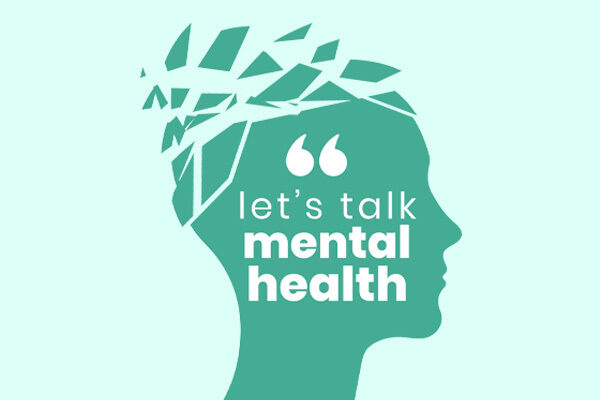Updated on August 28, 2023
Can high cholesterol cause headaches?
No, high cholesterol is not directly linked to causing headaches. However, high cholesterol can contribute to other health issues that might indirectly lead to headaches, such as an increased risk of heart disease or ischemic stroke.
Let’s dive deep into more details.
Overview
Your body requires a proportionate amount of cholesterol in the body for functioning and building healthy cells. However, if the quantity of cholesterol exceeds the normal levels, it may pose harmful effects. High cholesterol refers to the excessive accumulation of fat in the blood. It is no secret that high cholesterol or hypercholesterolemia is a common factor in causing multiple health issues. It can be inherited but oftentimes, it is a result of poor dietary habits and lifestyle choices.
For further insights into high cholesterol, continue reading the blog as it uncovers the causes, and warning signs of high cholesterol and delves deeper into the most frequently asked question, “Can high cholesterol cause headaches?”
Components of Cholesterol
The total cholesterol is the total amount of cholesterol in the body. It consists of good and bad cholesterol:
• HDL (High-density Lipoproteins):
It is also commonly referred to as “good cholesterol.” It helps to protect the heart from various heart diseases.
• LDL (Low-density Lipoproteins):
Also called “bad cholesterol” in layman’s terms. It is harmful to the body as it blocks the blood vessels and increases the risk of heart disease.
• Triglycerides:
This is another type of fat considered as the body’s energy source.
Having all types of cholesterol in the body in an adequate range helps, however, an excessive amount can be harmful. For this reason, the American Heart Association recommends getting tested every 4-6 years starting from the age of 20 years as the levels start to fluctuate.
Who Does High Cholesterol Affect?
• People older than 40 years of age
• Post-menopausal women
• People with these ethnicities: Asian-Indian, Philippines, or Vietnamese
Can High Cholesterol Cause Headaches? Warning Signs!
While a blood test conducted by a doctor remains the most reliable method to determine high cholesterol levels, there are noticeable indications and signs that could signal an excess of cholesterol in your body.
• Neck Pain:
People often ask, “Can high cholesterol cause headaches?” It can be explained by the high probability of cholesterol blocking the arteries and blood vessels, which causes the blood flow to and from the head and neck to be impaired. This results in a sore neck and often causes headaches.
• Tingling Hands & Feet:
Due to the blockage of blood vessels, the oxygen and blood supply is reduced to the peripheral regions of the body which leads to the tingling sensation in the hands and feet.
• Cholesterol Bumps on the Skin:
Cholesterol bumps, or xanthomas, are benign, yellow bumps filled with lipids that may appear on the eyelids, joints, elbows, hands, and feet. They often indicate an underlying health issue in which lipids are imbalanced in the body, such as high cholesterol.
• Heart Palpitations:
Clogged vessels due to high cholesterol levels make the heart beat a little faster than usual. Frequent heart palpitations might be an indication of cardiovascular disease.
• Gray Ring around the Cornea:
A greyish ring around the cornea can be an indication of high cholesterol. It is often hard to spot or locate but a healthcare professional would be better able to guide.
• Yellow Spots on the Eyelids:
Yellow spots on the eyelids are called xanthelasma. Luckily, they are not harmful to the eyes and can be removed by laser or acid treatments.
Can High Cholesterol Cause Headaches?
There are different schools of thought on this symptom. Some sources say there is no link between high cholesterol and headache whereas others believe there is a relationship between the two.
Few people report headaches as a common symptom of high cholesterol. One explanation for it is that high levels of cholesterol block the blood vessels and arteries which hamper the oxygen supply to the head region that results in periodic headaches. Additionally, high cholesterol levels may also cause nausea and dizziness.
Management Techniques
• Healthy Lifestyle:
Eating a heart-healthy diet can be of great help in lowering cholesterol levels. A diet rich in fruits, vegetables, nuts, whole grains, poultry, and fish can be especially beneficial.
• Exercise:
Taking out time for a walk and exercise not only helps in lowering cholesterol levels but also makes a person feel fresh and active all day long.
• Regular Checkup:
It is suggested to get tested every 4-6 years for cholesterol. It should start from the age of 20 years as the body undergoes changes and we may see alterations in hormone levels.
• Manage Weight:
It is essential to maintain weight as it is a leading cause in causing high levels of bad cholesterol. Therefore, it is important to plan a healthy diet and workout routine to ensure optimal health.
• Manage Stress:
Stress is the leading cause of high cholesterol in the body. High levels of cortisol from long-standing stress or depression can lead to high cholesterol levels. Cortisol is a hormone that increases fat deposition and causes blockage of arteries which leads to cardiovascular conditions.
Prognosis for High Cholesterol
If high cholesterol levels are not managed in time, they may lead to cardiovascular conditions. However, maintaining a proper diet and exercise routine can significantly reduce high cholesterol levels. This may also help in combatting the warning signs of high cholesterol.
In conclusion, the prognosis for people with high cholesterol is better if they are managing the condition well.
A Word from Revival
Revival Research is committed to elevating the standards of healthcare globally. We conduct multiple clinical trials for Dermatology, Cardiology, Allergy Medicine, and Internal Medicine. We are currently conducting clinical trials for Atherosclerotic Cardiovascular Disease (ASCVD) in people who have high cholesterol levels and associated cardiovascular conditions.
Also read: Identifying the Signs of High Cholesterol on Face
Takeaway
The answer to the most frequently asked question, “Can high cholesterol cause headaches?” depends on the levels of cholesterol. High levels of cholesterol can be dangerous for the overall health of an individual. The body starts to give signals even long before a person decides to get tested for it. Therefore, it is essential to keep track of your symptoms and consult a healthcare professional so that complications can be avoided. Moreover, having a good workout routine along with good dietary habits can help lower cholesterol levels.





